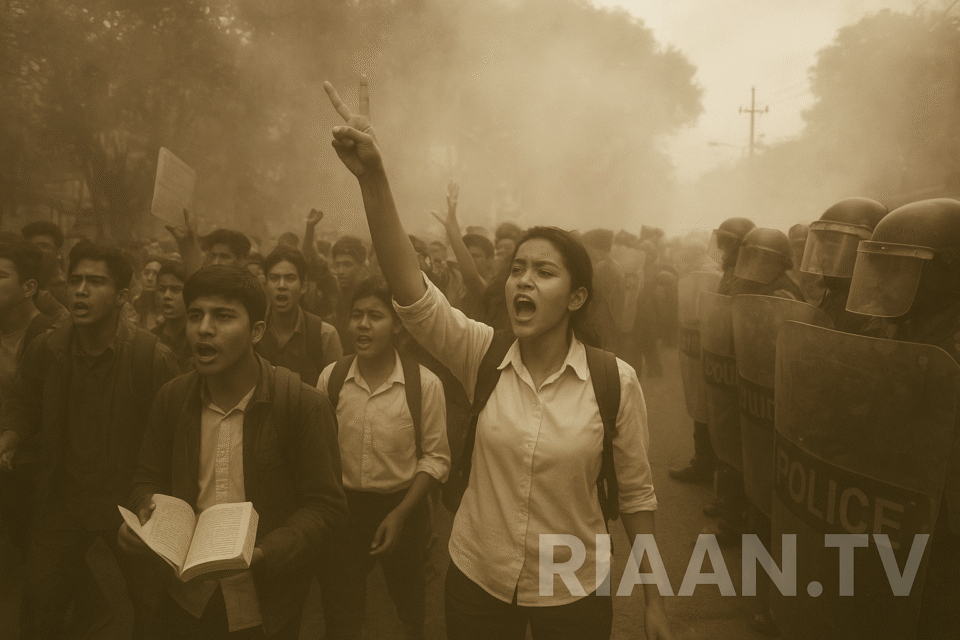Kathmandu- (Developing Story): Nepal’s capital witnessed violent clashes on Monday after thousands of young protesters hit the streets to oppose rampant corruption and the government’s controversial decision to block 26 social media platforms. At least nine people were killed and dozens injured in police firing near the Federal Parliament in New Baneshwar, prompting authorities to impose a strict curfew until late evening.
The protesters—many of them students carrying books and wearing school uniforms—marched under the banner of Hami Nepal to demonstrate against the shutdown of Facebook, Instagram, YouTube, WhatsApp, Snapchat, and other platforms. Organizers had earlier used social media to mobilize support and spread safety tips before the blackout.
Chief District Officer Chhabilal Rijal announced the curfew under Section 6 of the Local Administration Act, restricting all public gatherings, movement, and demonstrations between 12:30 pm and 10 pm. The curfew zone covers New Baneshwar Chowk and extends to Everest Hotel, Bijulibazar Arch Bridge, Tinkune Chowk, Ratna Rajya Secondary School, and Shankhamul Bridge.
Why the Social Media Ban?
On August 25, the Oli Cabinet passed the Directive on Regulating the Use of Social Media, 2023, requiring platforms to register with the Ministry of Communication and Information Technology within seven days. When the deadline expired on September 3, none of the major players—including Meta’s Facebook, Instagram, and WhatsApp, Alphabet’s YouTube, X (formerly Twitter), Reddit, and LinkedIn—complied. The government subsequently ordered telecom operators to block 26 unregistered platforms.
Oli Defends the Move
Responding to criticism, Prime Minister Oli said: “The independence of the nation is greater than the loss of a handful of jobs. How can it be acceptable to defy the law, disregard the constitution, and disrespect national dignity?” He insisted that the shutdown was about sovereignty and accountability, not censorship.
The Road Ahead
Despite the ban and curfew, Nepal’s youth have vowed to continue what they are calling a “Gen Z rebellion” against corruption, censorship, and political arrogance. Protests are expected to spread beyond Kathmandu in the coming days, raising fears of further unrest.

